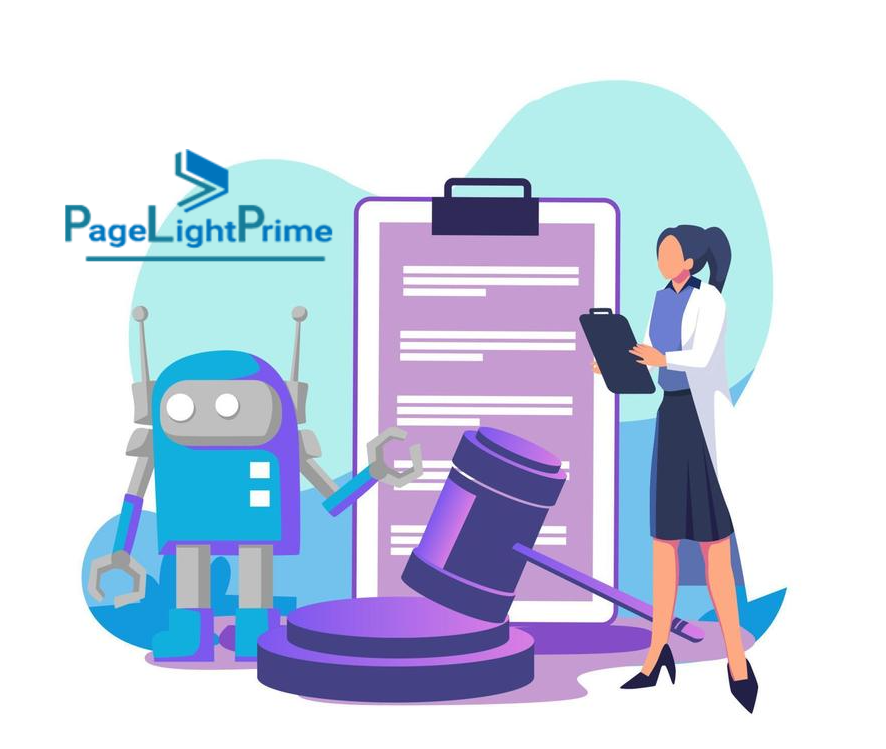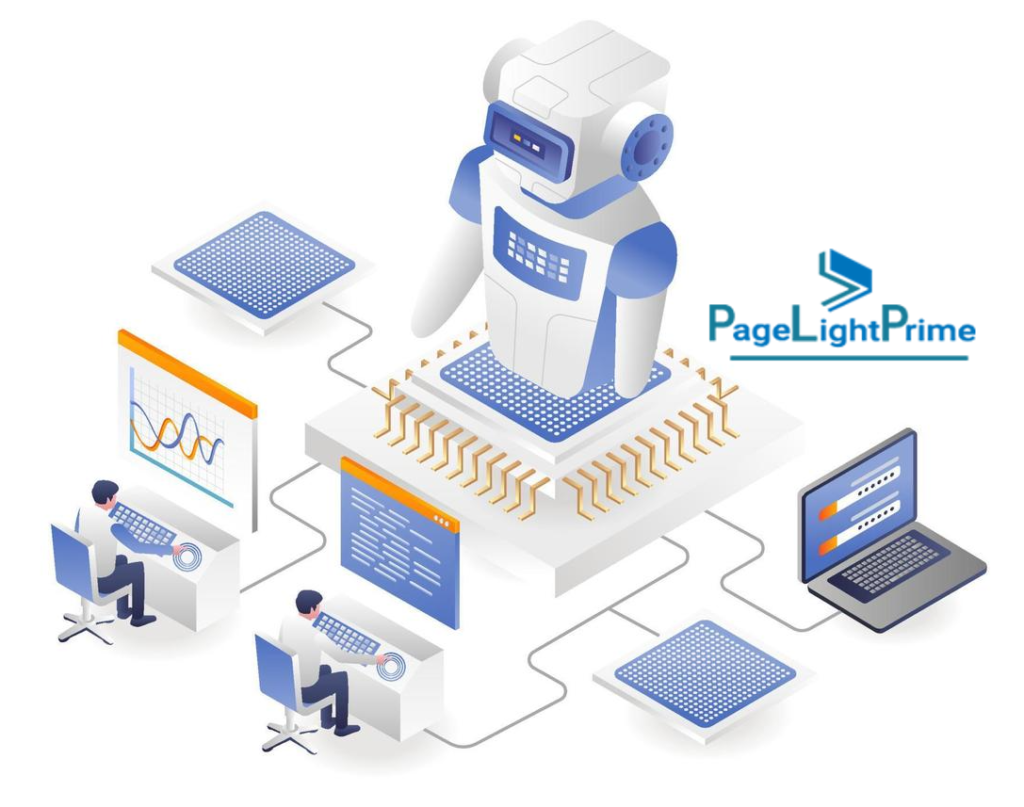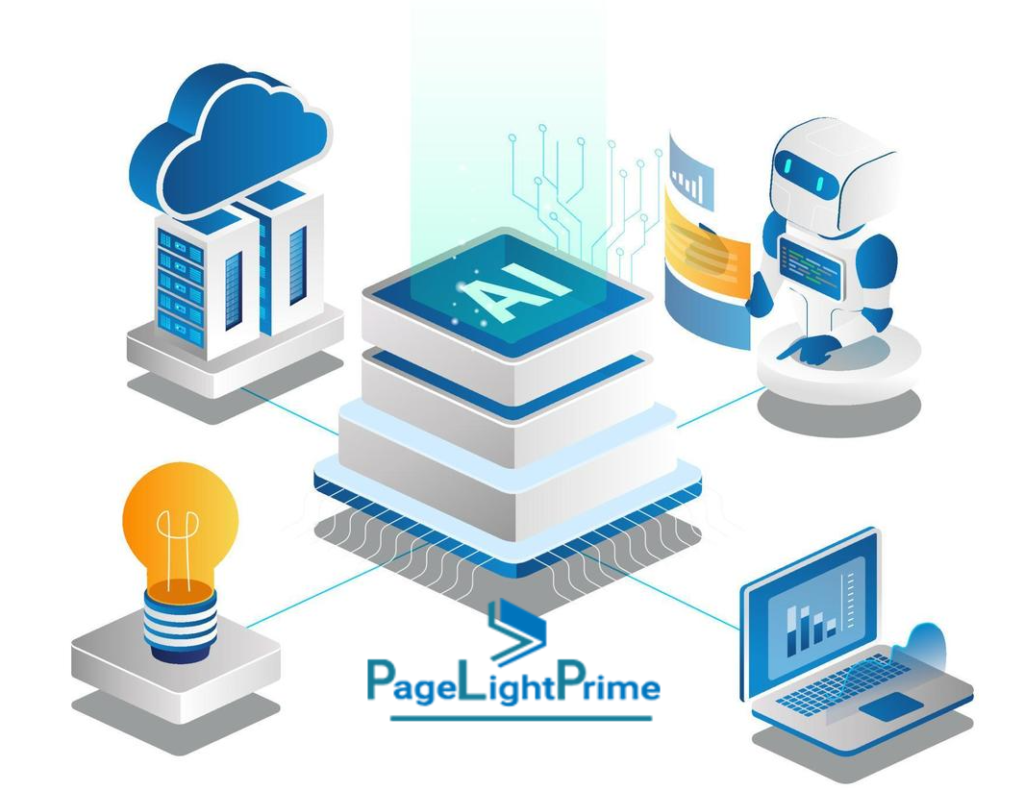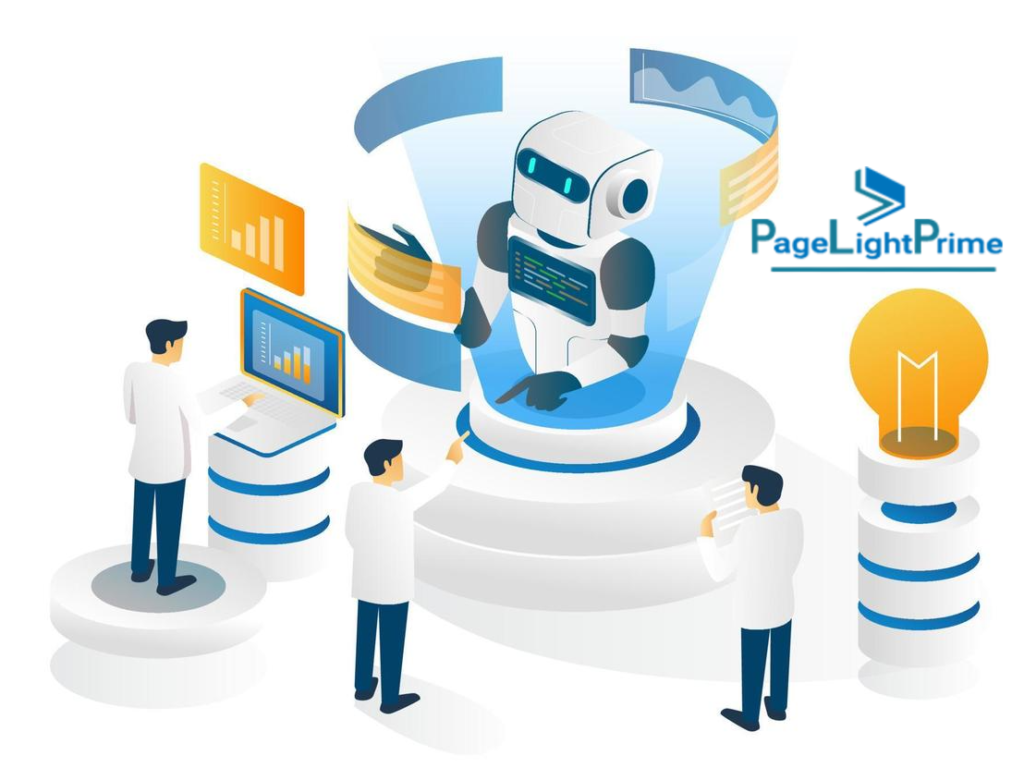Law Firm Operations Simplified: A Guide for Modern Law Firms in the AI World
In an era dominated by rapid technological advancements, the legal landscape is not immune to change. Modern law firms are navigating a digital revolution that has the potential to simplify and streamline their operations through the integration of artificial intelligence (AI).

Written by Knowledge Team, posted on August 16, 2023
This article serves as a comprehensive guide for law firms looking to leverage AI technologies to enhance efficiency, accuracy, and client satisfaction.
Introduction: AI’s Impact on Law Firms
Artificial Intelligence has emerged as a game-changer for the legal industry, offering solutions that range from automating routine tasks to providing sophisticated legal analysis. Law firms are embracing AI-driven tools to optimize operations, stay competitive, and deliver exceptional legal services.

Automating Routine Tasks
One of the primary advantages of AI in law firms is its ability to automate repetitive and time-consuming tasks. Legal professionals often find themselves bogged down by administrative work, but AI-powered tools can alleviate this burden. Document review, contract analysis, and due diligence are tasks that can now be handled efficiently by AI, allowing lawyers to focus on higher-value activities.
Enhanced Legal Research
AI-driven legal research platforms are transforming the way lawyers access and analyze information. These platforms can quickly sift through vast amounts of data, delivering precise and relevant insights. Natural language processing (NLP) capabilities enable attorneys to extract critical information from documents, statutes, and case law, significantly expediting the research process. For example, tools can provide real-time updates on case law changes, ensuring lawyers stay up-to-date effortlessly.
Predictive Analytics for Case Outcomes
AI’s predictive analytics capabilities have become invaluable in assessing the potential outcomes of legal cases. By analyzing historical data, AI can provide lawyers with insights into the likelihood of success in different scenarios. This data-driven approach empowers attorneys to make informed decisions and offer realistic expectations to clients, fostering trust and transparency.
Efficient Case Management and Collaboration
AI-driven case management systems offer a centralized platform for managing client matters, documents, and deadlines. These systems streamline workflows by automating task assignment, tracking progress, and ensuring timely follow-ups. Collaboration among team members is enhanced, leading to improved efficiency and communication. For instance, legal tech solutions like PageLightPrime can seamlessly integrate with AI assistants, enabling seamless teamwork and efficient case progression.

Tailored Legal Solutions
AI’s ability to process large amounts of data enables the creation of tailored legal solutions. Lawyers can analyze precedents, case law, and regulations to develop strategies that are uniquely suited to individual client needs. This personalization enhances the quality of legal services and client satisfaction, as solutions are designed to address specific circumstances and objectives.
Document Summary
AI-powered document summarization is revolutionizing the way legal professionals handle large volumes of text-heavy documents. With the ability to distill lengthy legal texts quickly and accurately into concise summaries, AI technology is saving valuable time and enhancing the efficiency of legal operations.
Document summarization AI employs advanced natural language processing techniques to identify key passages, extract critical information, and generate coherent summaries. This enables lawyers to quickly grasp the essential points of complex legal documents, aiding in case preparation, legal research, and contract review.
For example, tools like Semantrial provide automated document summarization, allowing lawyers to swiftly review case law, statutes, and contracts. This technology enables legal teams to focus on analyzing the summarized content, leading to more informed decision-making, and streamlined collaboration.
Metadata Extraction
Metadata extraction powered by AI is transforming the organization and management of legal documents. Metadata encompasses essential information such as authorship, dates, document types, and more. AI algorithms can automatically extract and categorize metadata, reducing the need for manual data entry and ensuring accuracy.
AI-driven metadata extraction tools use pattern recognition and machine learning to identify and extract relevant metadata from diverse document formats. This information enhances document categorization, retrieval, and compliance efforts.
For instance, solutions like cognitive data capture software utilize AI to extract metadata from invoices, contracts, and other legal documents. This not only accelerates document processing but also reduces the risk of errors that can arise from manual data entry.
Search
AI-powered search technologies are reshaping the way legal professionals’ access and retrieve information from vast document repositories. Traditional keyword-based searches are being enhanced by AI-driven semantic search capabilities, enabling more precise and context-aware results.
Semantic search AI comprehends the context of legal queries and documents, generating results that align with the user’s intent rather than relying solely on exact keyword matches. This technology improves search accuracy, helping lawyers quickly locate relevant precedents, case law, and legal interpretations.
For instance, tools like Ravel Law utilize AI to provide semantic search for legal databases. Legal professionals can input complex legal questions, and the AI system can identify relevant passages from legal documents and case law, offering deeper insights into legal issues.
Challenges and Ethical Considerations
While AI offers numerous benefits, it also presents challenges and ethical considerations. Ensuring the transparency of AI algorithms, addressing bias in AI decision-making, and safeguarding against job displacement are all vital aspects that law firms must carefully navigate. As AI algorithms are continually refined, law firms must prioritize fairness and accountability in their AI systems.

Future Outlook
The integration of AI in law firm operations is not a trend; it’s a transformation. As AI technologies continue to evolve, law firms must remain adaptable and open to embracing innovation. The future promises advancements like AI-powered contract negotiation, virtual courtrooms, and even more sophisticated legal research capabilities. Lawyers who stay at the forefront of these developments will be well-prepared for the dynamic legal landscape of tomorrow.
Conclusion
In the AI-powered world, law firms have an unprecedented opportunity to simplify their operations and deliver exceptional legal services. From automating routine tasks to predicting case outcomes, AI is reshaping the legal landscape. By embracing these technologies and proactively addressing challenges, modern law firms can navigate the evolving legal landscape with confidence, ensuring a seamless blend of human expertise and technological innovation. As the journey continues, the partnership between AI and law firms will undoubtedly redefine the way legal services are delivered and experienced.
Join the Conversation
Have thoughts to share or questions about AI in law firms? We’d love to hear from you! Leave a comment below or explore our resources for further insights into this transformative topic.
